Juicing has become a popular way to boost nutrient intake and improve health. When you start juicing, your body gets a concentrated dose of vitamins, minerals, and antioxidants from fruits and vegetables. This can lead to some noticeable changes in how you feel and function.
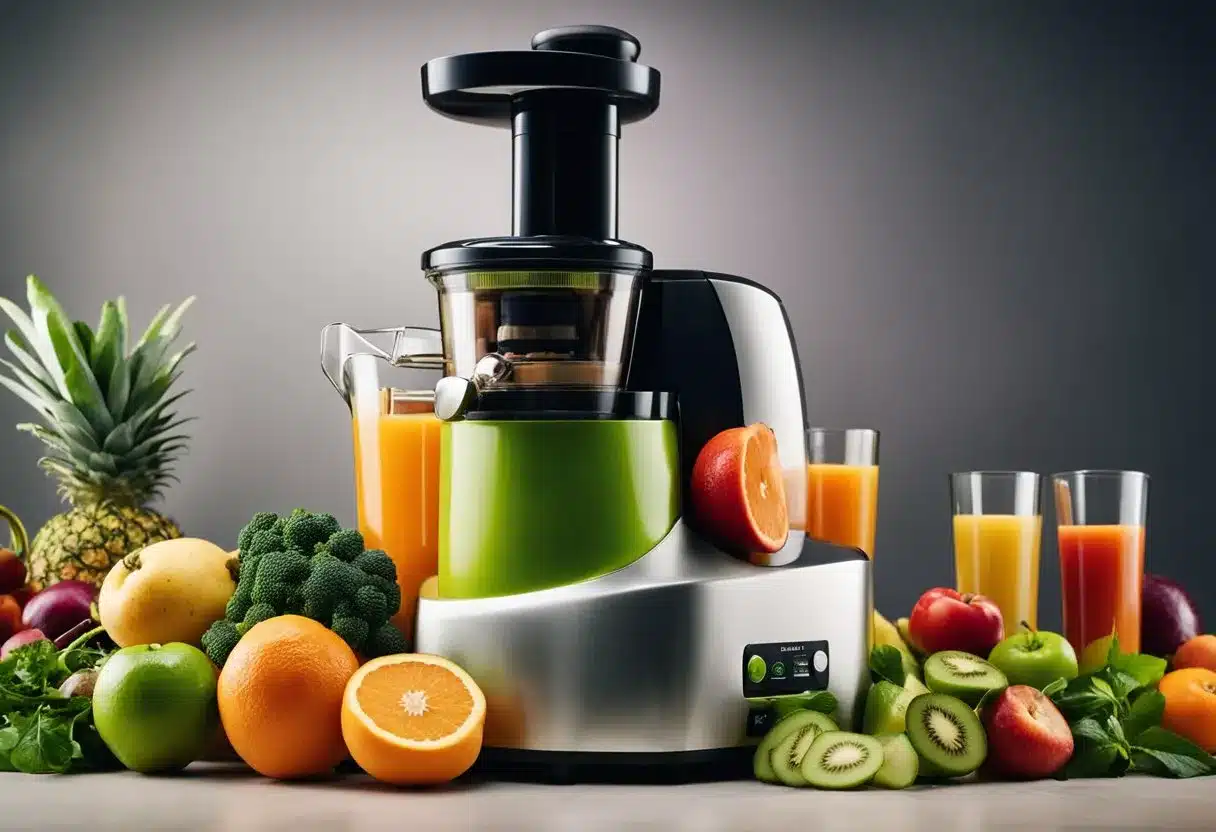
Your body may experience a surge of energy and improved digestion as it adjusts to the influx of easily absorbed nutrients from fresh juices. Many people report feeling more alert and focused after adding juicing to their routine. The high water content in juices can also help with hydration, which is important for overall health.
Juicing can have both positive and negative effects on the body. While it can provide a quick way to increase fruit and vegetable intake, it’s important to be aware of potential downsides. Juice cleanses may cause rapid weight loss, but this is often temporary and can lead to nutrient deficiencies if not done properly. It’s best to view juicing as a supplement to a balanced diet rather than a replacement for whole foods.
Key Takeaways
- Juicing provides a concentrated source of nutrients that can boost energy and digestion
- The effects of juicing can include both benefits and risks to overall health
- Juicing should complement a balanced diet rather than replace whole foods entirely
Understanding Juicing
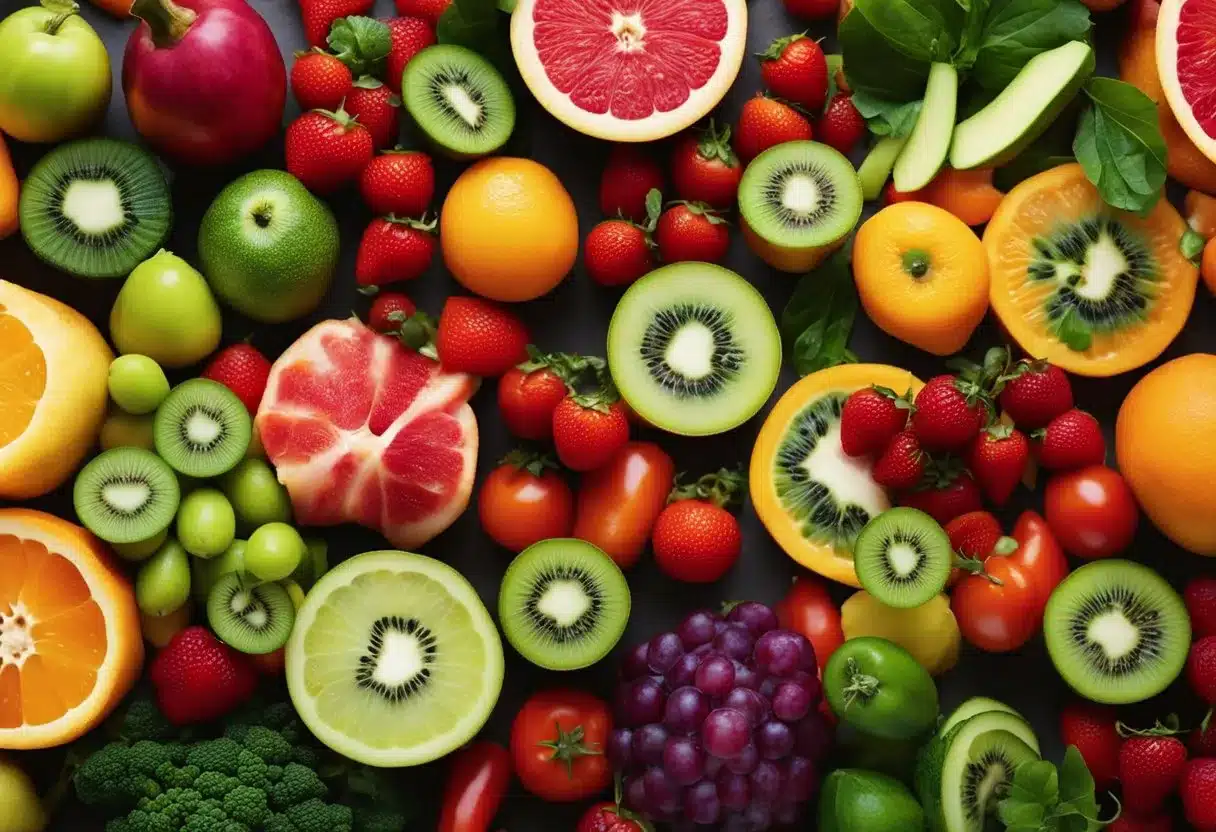
Juicing involves extracting juice from fruits and vegetables to create nutrient-rich drinks. This process can provide a concentrated source of vitamins, minerals, and antioxidants.
Defining Juicing and Juice Cleanses
Juicing is the act of extracting liquid from fruits and vegetables. It separates the juice from the pulp, creating a smooth drink. Juice cleanses are short-term diets where people consume only fruit and vegetable juices.
These cleanses typically last 1-7 days. Proponents claim they detoxify the body and boost health. However, scientific evidence for these claims is limited.
Juicing can be a way to add more produce to one’s diet. It’s often used as a supplement to regular meals rather than a replacement.
The Popularity of Fruit and Vegetable Juices
Fruit and vegetable juices have gained popularity in recent years. Many people see them as a quick way to consume more nutrients.
Juices are often marketed as health drinks. They’re found in grocery stores, juice bars, and health food shops. Some popular juice combinations include:
- Green juices (kale, spinach, cucumber)
- Citrus blends (orange, grapefruit, lemon)
- Root vegetable juices (carrot, beet, ginger)
The rise of juicing is linked to increased health consciousness. People are looking for convenient ways to improve their diets.
Juicer and Blending Techniques
There are two main methods for making juice at home: juicing and blending. Each technique produces a different result.
Juicers extract juice and separate the pulp. There are several types:
- Centrifugal juicers (fast, affordable)
- Masticating juicers (slow, efficient)
- Twin-gear juicers (high-end, thorough)
Blenders, on the other hand, pulverize whole fruits and vegetables. This creates a thicker drink that includes fiber.
Cleaning juicers promptly is important to prevent bacterial growth. Rinse parts under running water and use a brush for hard-to-reach areas.
Nutritional Shifts When Starting Juicing
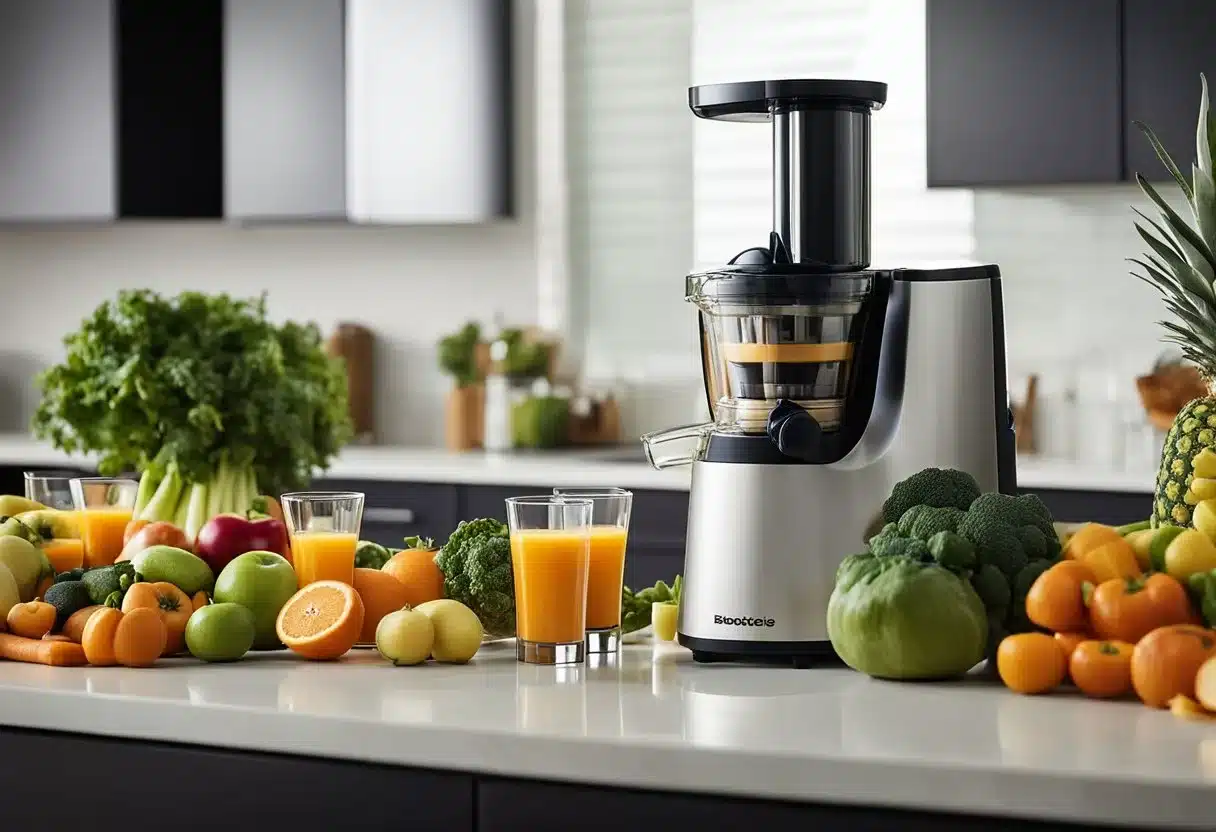
Juicing changes how your body gets nutrients. It affects the types and amounts of vitamins, minerals, and other compounds you take in.
Macro and Micronutrient Considerations
Juicing boosts intake of some nutrients while lowering others. It increases vitamin and mineral intake from fruits and veggies. Many juices are rich in vitamins A and C.
But juicing removes fiber. This changes how your body absorbs sugars and nutrients. Juices often have more sugar and calories than whole fruits.
Protein intake may drop when juicing. Most fruits and veggies are low in protein. This can affect muscle health and fullness.
Juicing vs. Eating Whole Foods
Whole foods and juices affect the body differently. Juicing removes fiber, which is important for gut health. It also makes you feel less full.
Whole foods take longer to eat and digest. This helps control blood sugar better than juice. Juice can cause blood sugar to rise quickly.
Juicing may lead to nutrient loss. Some vitamins break down when exposed to air and light. Whole foods keep nutrients intact longer.
But juicing can help some people eat more produce. It’s an easy way to get more vitamins and minerals for those who don’t like whole fruits and veggies.
Health Benefits of Juicing
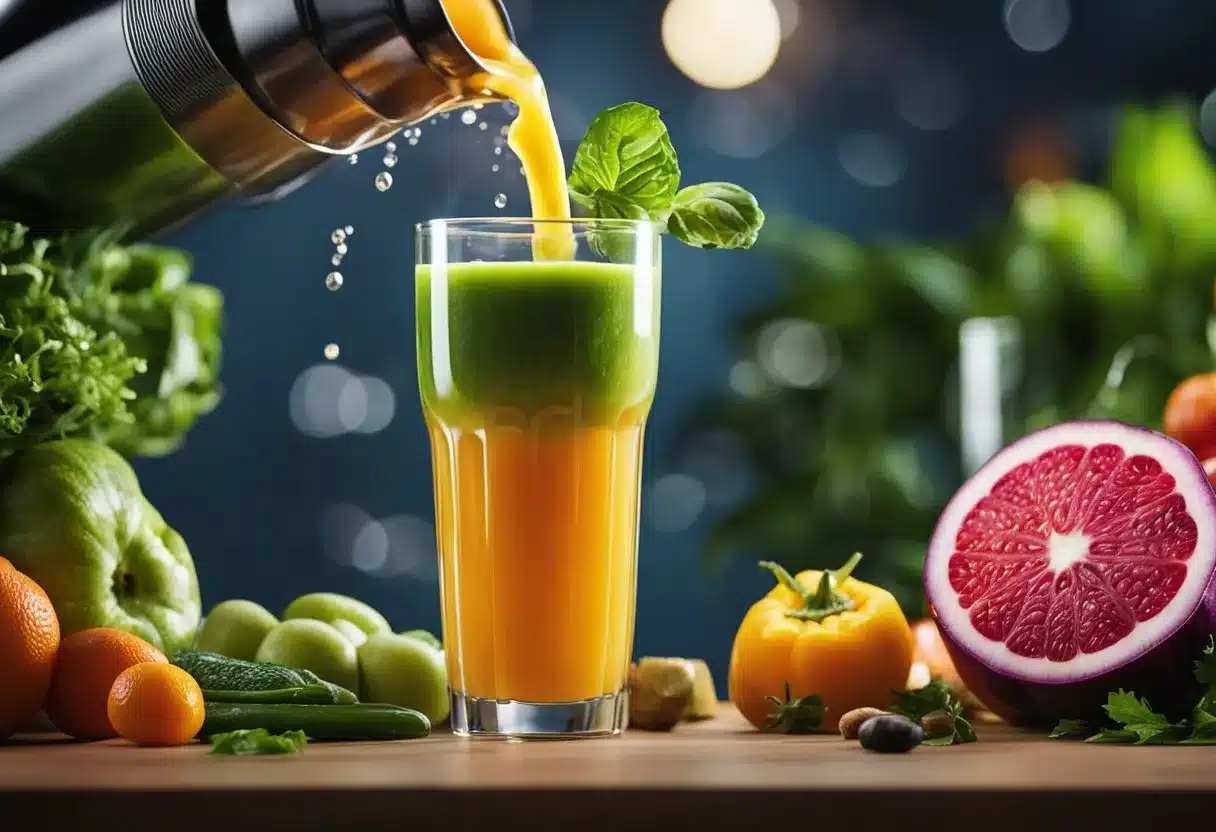
Juicing can provide a concentrated dose of nutrients and may offer several health advantages. It can boost vitamin intake, aid digestion, and potentially increase energy levels.
Improvement in Vitamin and Mineral Intake
Juicing allows for easy consumption of a wide variety of fruits and vegetables. This can lead to increased intake of essential vitamins and minerals. Many juices are rich in vitamins A, C, and E, as well as minerals like potassium and magnesium.
Juices also contain antioxidants. These compounds help protect cells from damage caused by free radicals. Regular consumption of antioxidant-rich juices may support overall health.
Some juices are particularly nutrient-dense. For example, carrot juice is high in vitamin A, while kale juice provides substantial amounts of vitamins K and C.
Enhancement of Digestive Health
Juicing can give the digestive system a break from processing fiber. This may be helpful for people with certain digestive conditions. The nutrients in juice are easily absorbed by the body.
Many juices contain enzymes that aid in digestion. Pineapple juice, for instance, contains bromelain, which can help break down proteins.
Some juices may have a mild laxative effect. This can promote regular bowel movements and help prevent constipation.
Boosting Energy and Mental Clarity
Drinking fresh juices can provide a quick energy boost. The natural sugars in fruit juices are easily converted to energy by the body.
Some people report improved mental clarity when incorporating juicing into their diet. This may be due to the increased intake of nutrients that support brain function.
Certain juices, like beet juice, may improve blood flow. Better circulation can lead to increased energy levels and improved cognitive performance.
It’s important to note that while juicing can offer benefits, it should not replace whole fruits and vegetables in the diet entirely. Moderation is key to reaping the rewards of juicing without overdoing sugar intake.
Impact on Body Weight and Fat Loss
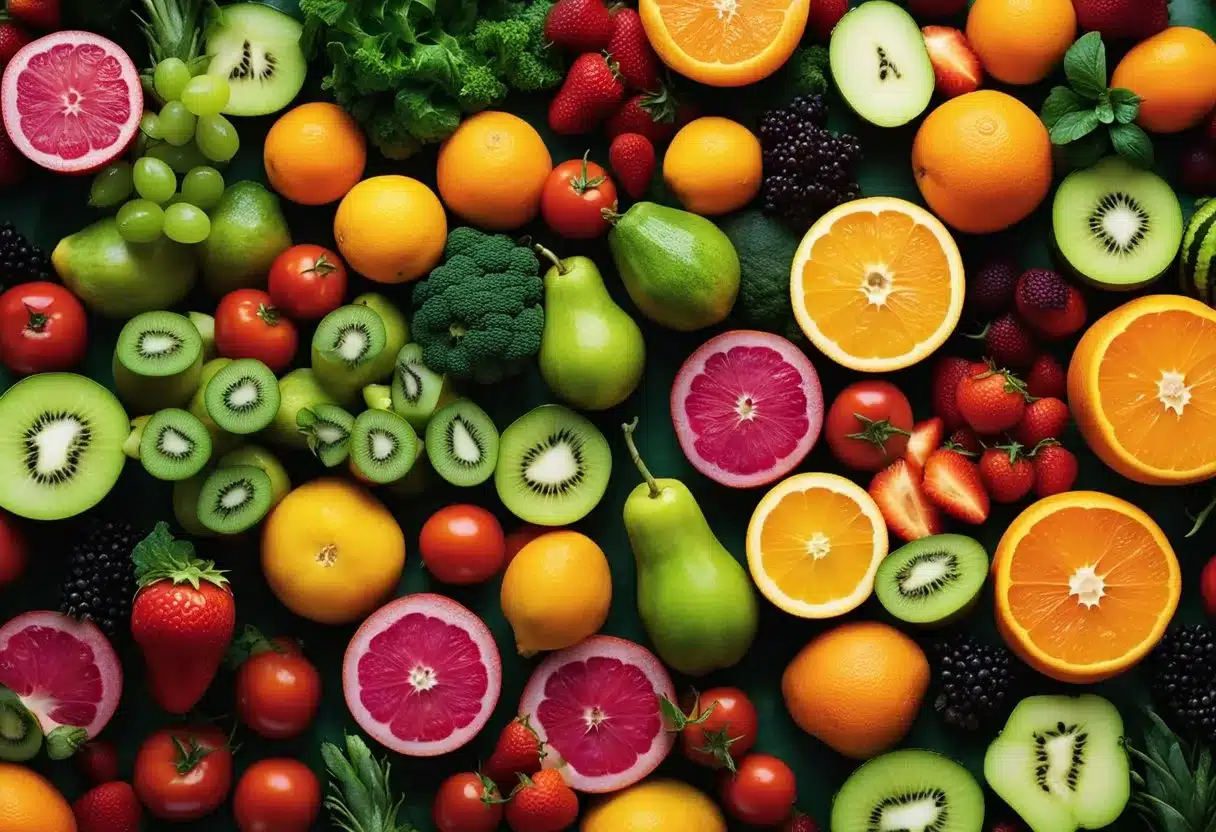
Juicing can affect body weight and fat in complex ways. It may lead to quick initial weight loss but has limitations for long-term fat reduction. The effects depend on the types of juices consumed and overall diet.
Understanding Weight Loss and Fat Reduction
Juicing often results in rapid weight loss at first. This is mainly due to a drop in calories and loss of water weight. The body sheds excess fluid when carbohydrate intake decreases.
Fat loss takes more time. To burn fat, the body needs a calorie deficit. Some juice diets are very low in calories, which can trigger fat burning. But extreme calorie cuts can slow metabolism.
Juice-only diets lack protein and fiber. This makes it hard to maintain muscle mass during weight loss. Losing muscle can further slow metabolism over time.
Detoxification and Its Effect on Fat Cells
Juicing is said to help “detox” the body. While the liver and kidneys naturally remove toxins, some juice ingredients may support this process.
Certain compounds in fruits and vegetables can boost liver function. A healthy liver processes fats more efficiently. This may indirectly aid fat loss over time.
But juicing alone doesn’t directly target fat cells. Fat loss still requires a consistent calorie deficit through diet and exercise.
Relevance of Calories and Sugar Content
The calorie and sugar content of juices greatly impacts weight and fat loss. Fruit juices can be high in natural sugars and calories. This may hinder fat loss goals if consumed in large amounts.
Vegetable juices tend to be lower in calories and sugar. They’re often a better choice for weight management. But they lack the fiber of whole vegetables.
A sample juice calorie comparison:
- 1 cup carrot juice: 94 calories
- 1 cup apple juice: 114 calories
- 1 cup kale juice: 34 calories
Balanced juicing combined with whole foods is key for sustainable weight loss. It’s important to monitor overall calorie intake and include protein sources for best results.
Short-term and Long-term Effects
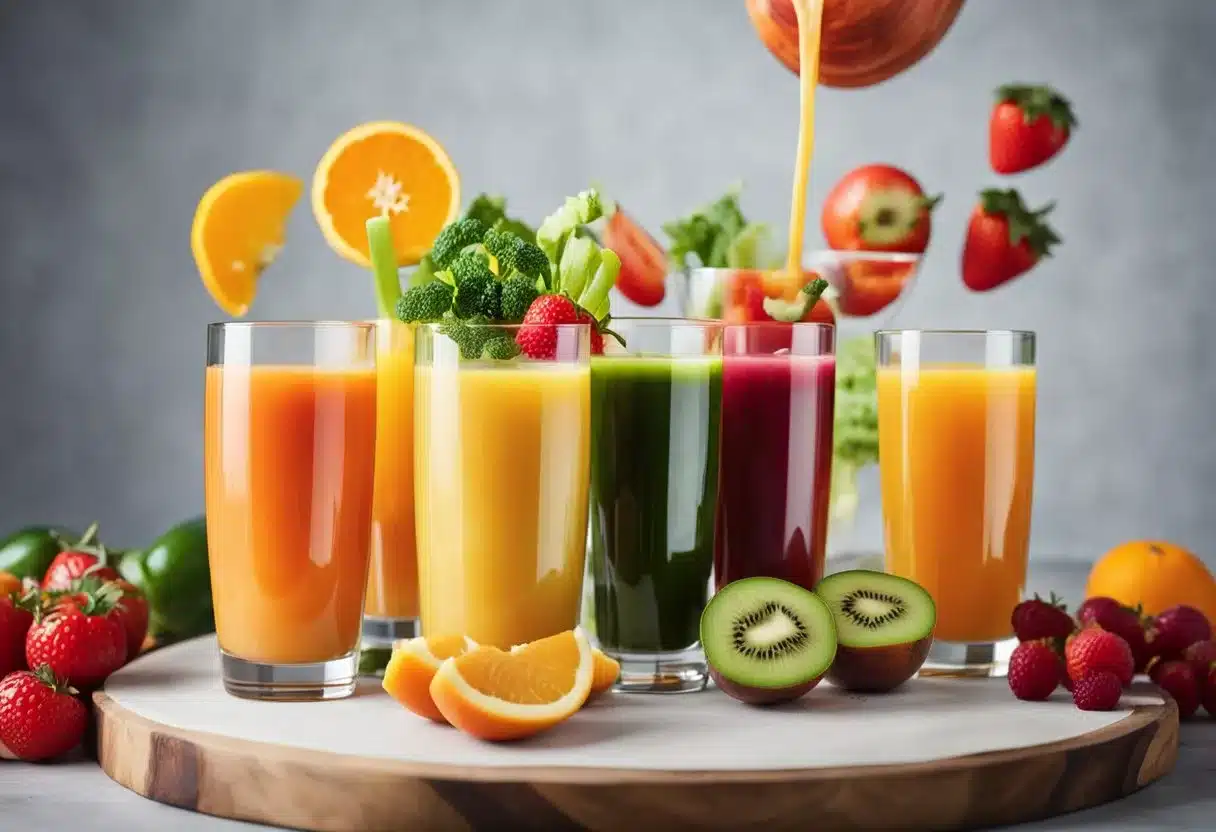
Juicing can lead to rapid changes in the body. These effects can be both positive and negative, depending on the individual and their approach to juicing.
Initial Body Responses to Juicing
When starting a juicing regimen, many people experience a quick drop in blood sugar levels. This can cause feelings of weakness or dizziness. The body may also go through a detox-like process as it adjusts to the new diet.
Some people report increased energy levels and mental clarity. This is likely due to the influx of vitamins and minerals from fresh juices.
Rapid weight loss is common in the first few days of juicing. This is mostly water weight and not sustainable long-term fat loss.
Digestion may change dramatically. Some might experience more frequent bowel movements or minor stomach discomfort.
Sustained Dietary Changes and Adaptations
Over time, the body adapts to regular juicing. The liver and kidneys work harder to process the increased nutrient intake. This can be beneficial but may also put stress on these organs.
Metabolism may slow down if juicing replaces too many whole foods. The body needs a balance of nutrients, including protein and healthy fats, to function properly.
Long-term juicing can lead to nutrient imbalances. While rich in some vitamins, juices lack fiber and other essential nutrients found in whole fruits and vegetables.
Sustained weight loss is possible with juicing as part of a balanced diet. However, it’s important to maintain adequate calorie intake to avoid muscle loss.
Common Side Effects and Risks
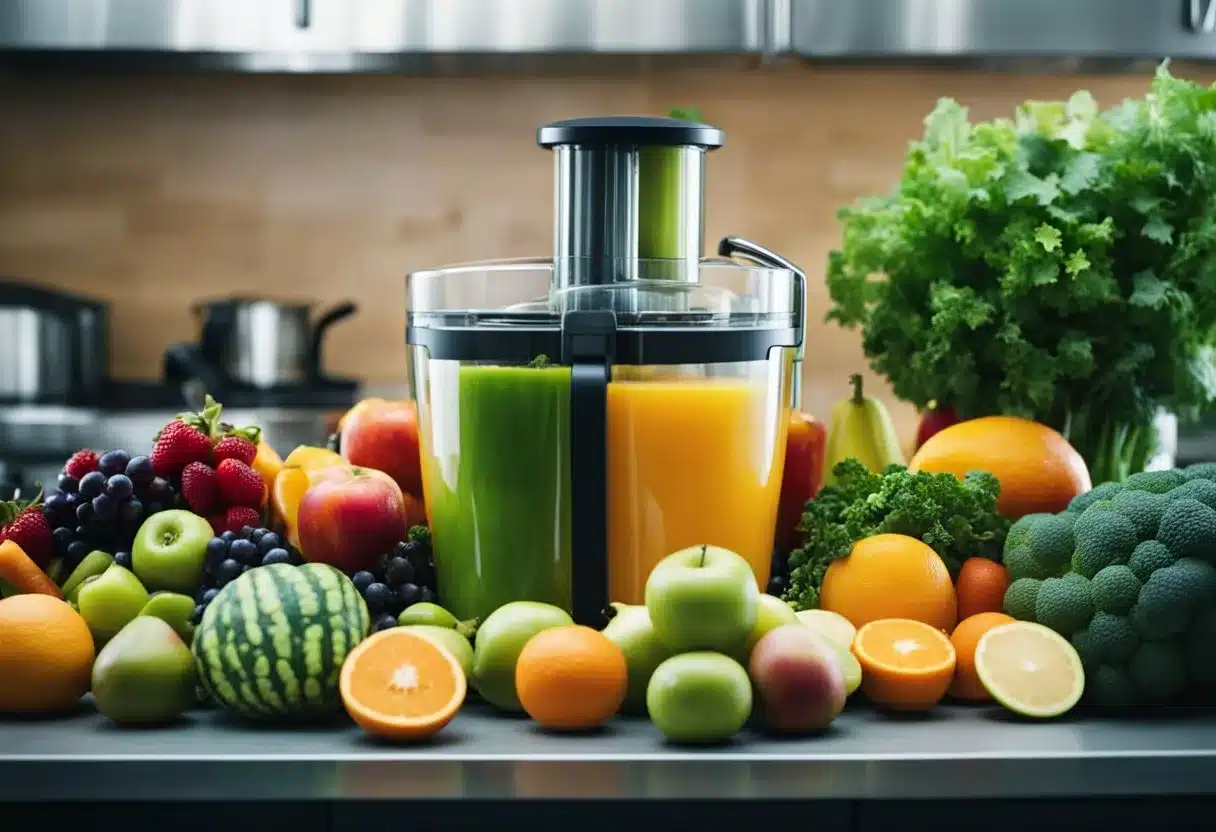
Juicing can affect the body in various ways. Some people may experience unwanted reactions when they start a juice-based diet.
Potential Nutrient Deficiencies
Juice cleanses often lack essential nutrients. They’re low in protein, healthy fats, and fiber. This can lead to muscle loss and weakness. The body needs these nutrients for proper function.
Many juices are missing important vitamins and minerals. This can cause fatigue and weaken the immune system. Long-term juicing may lead to deficiencies in iron, calcium, and vitamin B12.
Balanced diets that include whole fruits and vegetables are better for overall health. They provide a wider range of nutrients that juices alone can’t offer.
Blood Sugar Fluctuations and Diabetes Risk
Fruit juices are high in natural sugars. This can cause rapid spikes in blood glucose levels. For people with diabetes, this is especially risky.
Juice cleanses may increase diabetes risk in some people. The quick sugar absorption can stress the pancreas. Over time, this may lead to insulin resistance.
Whole fruits are a healthier choice. They contain fiber that slows sugar absorption. This helps keep blood sugar levels more stable.
Digestive Issues and Other Discomforts
Juicing can cause digestive problems. Many people experience bloating, gas, and diarrhea when they start. This is often due to the high sugar content and lack of fiber.
Some may feel very hungry on juice-only diets. This can lead to headaches, dizziness, and irritability. Caffeine withdrawal can worsen these symptoms for regular coffee drinkers.
Dehydration is another risk. Many juice cleanses have a diuretic effect. This means more frequent urination, which can lead to fluid loss. It’s important to drink enough water while juicing.
Considerations for Special Diets and Health Conditions
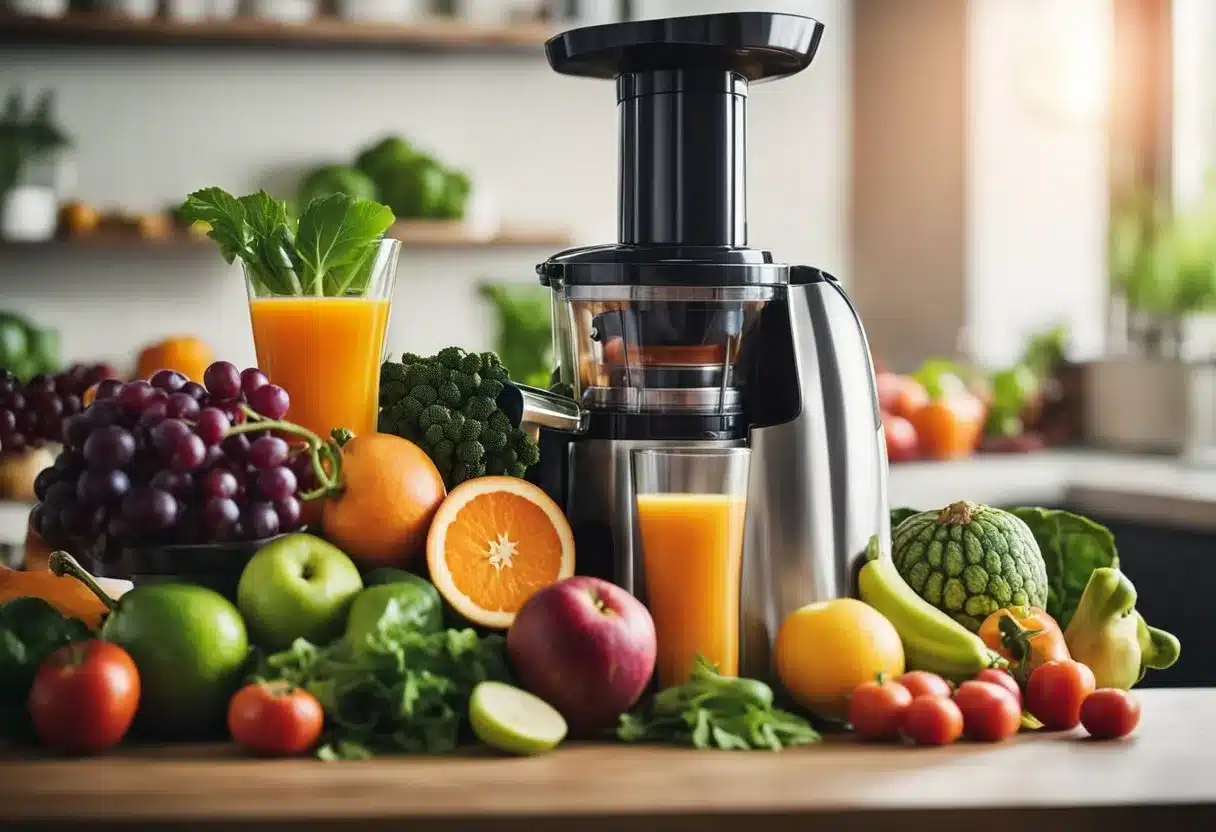
Juicing can affect people differently based on their health status and dietary needs. It’s important to understand how juice cleanses may impact specific conditions and restrictions.
Adapting Juice Cleanses for Allergies or Restrictions
For those with food sensitivities, juice cleanses need careful planning. People with dairy allergies should avoid juice blends containing yogurt or milk. Gluten-free diets require juices made only from fruits and vegetables.
Fructose intolerance calls for low-sugar juice options. Good choices include cucumber, celery, and leafy greens. Avoid high-fructose fruits like apples and pears.
Those following wheat-free diets can enjoy most juices. But watch out for additives in pre-made juices that may contain gluten.
Impact on Heart Health and Blood Pressure
Juicing can affect heart health and blood pressure in several ways. Many fruit and vegetable juices are high in potassium, which may help lower blood pressure.
Beetroot juice has been linked to improved blood pressure. It contains nitrates that can relax blood vessels.
But some juices are high in sugar. This can raise blood glucose and potentially impact heart health. Balance is key. Mix fruit juices with vegetable juices to reduce overall sugar content.
Juicing with Pre-existing Medical Concerns
People with certain health conditions need to be cautious when juicing. Those with diabetes should monitor blood sugar carefully. Fruit juices can cause rapid spikes in glucose levels.
Cancer patients should consult their doctor before starting a juice cleanse. Some treatments may affect nutrient absorption or increase infection risk.
Heart disease patients should be aware of the sodium content in vegetable juices. Too much sodium can raise blood pressure.
For any medical condition, it’s best to speak with a healthcare provider before starting a juicing regimen. They can offer personalized advice based on individual health needs.
Integrating Juicing into a Balanced Diet

Adding juice to your meals can boost nutrition when done right. Juicing works best as part of a varied diet with solid foods and key nutrients.
Incorporating Solid Food and Protein Sources
Juicing shouldn’t replace whole meals. Mix juice with solid foods at mealtime. This helps you feel full and get needed fiber. Good protein options include:
- Lean meats
- Fish
- Eggs
- Beans
- Nuts
Juicing alone doesn’t provide balanced nutrition. Your body needs protein for muscle health. It also requires healthy fats from foods like avocados and olive oil.
Pair juice with a protein-rich breakfast. Try a green juice with eggs or Greek yogurt. For lunch, have carrot juice alongside a turkey sandwich.
Balancing Macronutrients and Fiber for Optimal Health
Juice gives vitamins but lacks fiber and protein. Blending whole fruits keeps the fiber. This helps control blood sugar and keeps you full.
Add these high-fiber foods to your diet:
- Whole grains
- Leafy greens
- Berries
- Apples
- Nuts
Choose different colored produce for varied nutrients. Green veggies offer chlorophyll. Orange fruits provide beta-carotene.
Aim for 2-3 servings of juice daily. Don’t exceed 4-6 oz per serving. This amount gives benefits without too much sugar.
Sustainable Health Practices Beyond Juicing

Juice cleanses can kick-start healthy habits, but long-term wellness requires a balanced approach. A varied diet and active lifestyle provide more sustainable benefits than short-term juice fasts alone.
Maintaining Nutritional Health After a Juice Cleanse
After a juice cleanse, it’s key to reintroduce solid foods slowly. Start with easily digestible options like soups and smoothies. Gradually add in whole fruits, vegetables, lean proteins, and whole grains.
Focus on getting a mix of nutrients from different food groups. Whole foods provide fiber and other components juicing removes. Aim for 5-9 servings of fruits and veggies daily.
Stay hydrated with water instead of sugary drinks. This helps maintain energy levels and aids digestion. Regular exercise complements a healthy diet. Aim for 150 minutes of moderate activity weekly.
Educating on the Importance of Diverse Foods
A varied diet offers more complete nutrition than juice alone. Different foods provide unique benefits the body needs to thrive. Colorful fruits and veggies supply various vitamins and antioxidants.
Lean proteins help build and repair tissues. Whole grains give sustained energy and fiber. Healthy fats support brain function and nutrient absorption.
Limiting sugar intake is important for stable energy and weight. Choose whole fruits over juices to get fiber along with natural sugars. Read labels to spot added sugars in packaged foods.
Learning to prepare simple, balanced meals at home allows better control over ingredients and portions. This supports long-term health goals more effectively than periodic cleanses.
Frequently Asked Questions
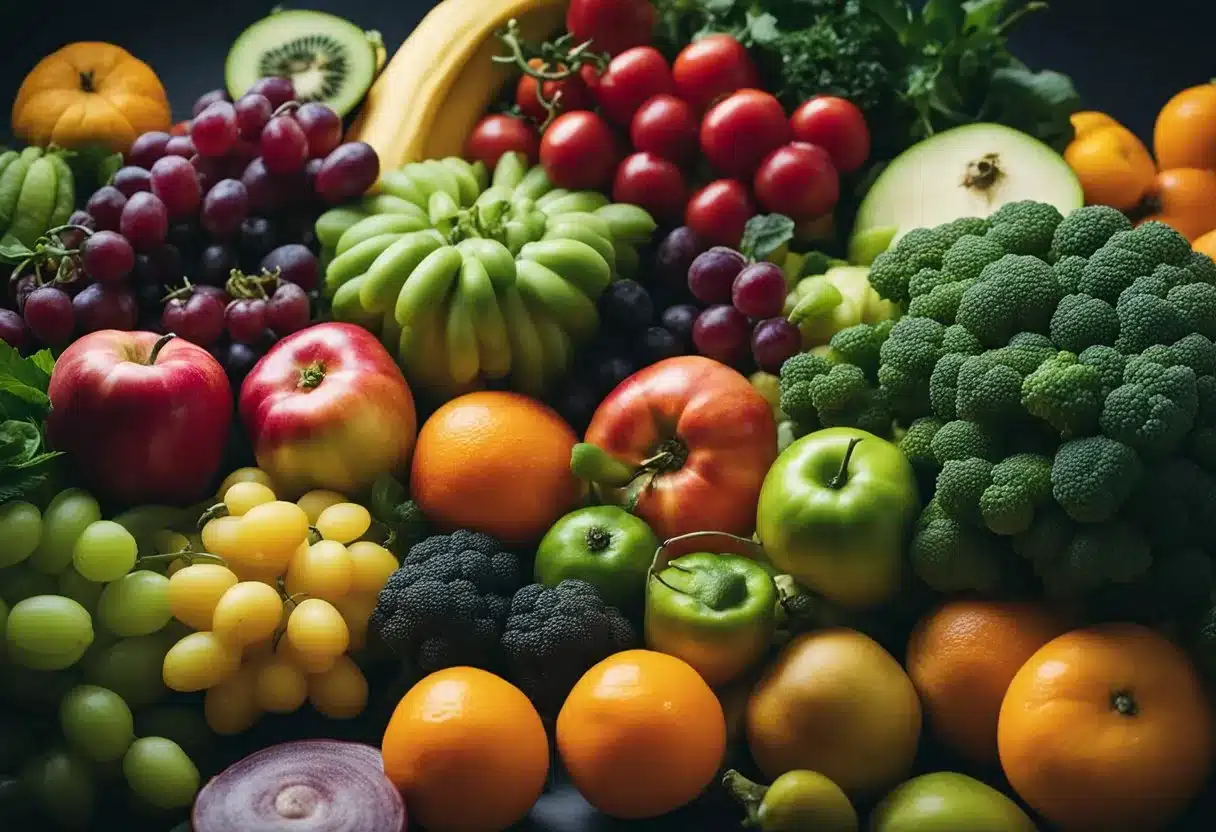
Juicing can impact your health and body in various ways. People often have questions about its effects, benefits, and potential drawbacks.
What are the potential health benefits of incorporating fresh juice into your daily diet?
Fresh juice can boost nutrient intake. It provides vitamins, minerals, and antioxidants from fruits and vegetables. Juicing may improve digestive health for some people.
Drinking juice can increase energy levels. It delivers easily absorbed nutrients to the body. This quick absorption may help people feel more energized.
How might a 3-day juice cleanse impact your body and well-being?
A 3-day juice cleanse can affect the body in several ways. It may lead to rapid weight loss, mostly from water and stored carbohydrates.
Some people report feeling more alert and focused during a short cleanse. Others may experience headaches or fatigue as the body adjusts to fewer calories.
Can you expect any physical changes from a 7-day juice cleansing program?
A 7-day juice cleanse can cause more noticeable changes. Weight loss often continues, but may slow down after the initial days.
Skin might appear clearer or more radiant. This could be due to increased hydration and nutrient intake. Energy levels may fluctuate throughout the week.
What are the possible side effects or reactions when beginning a juicing regimen?
Common side effects include headaches and fatigue. These often occur as the body adjusts to a new diet.
Some people experience digestive changes. This can include increased bowel movements or gas. Hunger and cravings for solid food are also common reactions.
How soon can someone typically expect to see health improvements from juicing?
Some people report feeling better within days of starting juicing. Energy levels may increase and digestion might improve quickly.
Visible changes like clearer skin or weight loss can take longer. These effects may be noticeable after a few weeks of regular juicing.
Is there evidence to support the idea that juicing can effectively detoxify the body?
Scientific evidence for juicing as a detox method is limited. The body naturally detoxifies itself through organs like the liver and kidneys.
Juicing can support these organs by providing nutrients. It may also reduce intake of processed foods. This can help the body’s natural detox processes work more efficiently.